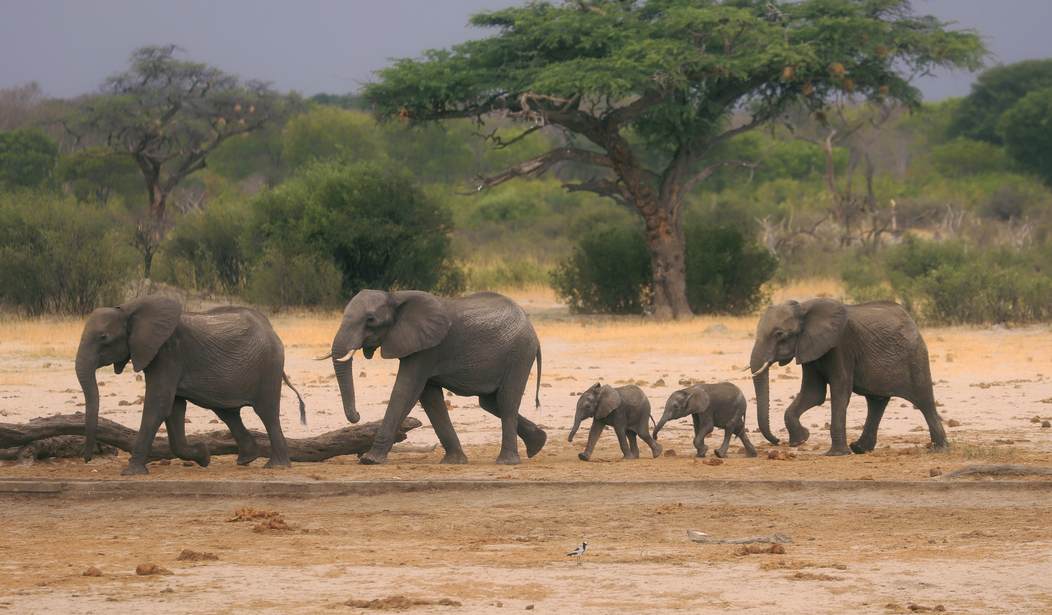Years ago, I had a chicken named Marigold who had some sort of internal issue that caused her to bleed out. When chickens see blood, they tend to peck at it, so I ended up having to separate her from the rest of my small flock. I was new to chicken keeping then and rushed her off to my vet as soon as I could. The doctor made a crack about how he was supposed to go eat chicken wings later that evening and then asked how far he wanted me to go with treating her. "Is this a beloved family pet, or do you know there are baby chicks across the street at Tractor Supply and you can just start over?" he asked.
"Somewhere in the middle," I replied. He fixed her up, sent her home with an antibiotic, and told me to keep her separated for another couple of weeks while she healed. I did that, but what I didn't realize at the time is that integrating her back into the main flock would not be easy. Despite the fact that I kept her in a cage right next to the main one, the others attacked her as soon as they were allowed to free range together. Chickens are social creatures, and I felt bad for Marigold, who didn't have pals anymore.
A couple of weeks later, the strangest thing happened. Long story, a little shorter, someone dumped two hens in front of my house. I had no intention of keeping them and had even found a home for them, but one day I looked outside just before I went to close everyone up for the night, and one of the dumped girls was in Marigold's cage with her, snuggled up next to her on her perch. I decided to keep the two dumped chickens after that and went to work building a separate coop for Marigold and her two new pals, whom I named Jasmine and Tulip.
About two or three weeks after I finished it, I went out one evening and found Marigold dead inside on the nest, something my vet said would happen if she ever tried to lay an egg again. For the next couple of days, Tulip searched high and low for her, and finally she gave up. She became despondent and would just sit in my driveway all day, as if she was waiting for Marigold to come back. She stopped eating, but there was nothing physically wrong with her. About a week later, I came home and found her dead in my garage. I truly believe she mourned herself to death.
We've all heard stories of animals who appear to grieve — the dog who sits by the door and waits for its human who is never coming home, the whale carrying her dead baby for days, and the elephants who return to the bones of their dead to touch them.
Animals actually do mourn their dead.
— Massimo (@Rainmaker1973) July 8, 2025
This is the heartbreaking moment a grieving koala mourns the death of his female companion in the Adelaide Hills.
[📹 South Australia 's Koala Rescue Inc]pic.twitter.com/pNFADZfzB8
Tales like these date all the way back to Pliny the Elder, who lived from 23-79 AD. Charles Darwin asserted that animals experienced various emotions, like pain, pleasure, happiness, and misery. In 1972, Jane Goodall observed a young chimpanzee lose interest in food and social interaction after his mother died, and a month later, he was dead, too. The same year, biologist and anthropologist Ursula Moser Cowgill noted two depressed "captive primates" who would set food out for a dead companion, even if meant they wouldn't have enough to eat themselves.
But is that really what's going on? For a long time, many scientists felt that while animals were reacting to the deaths around them, they weren't necessarily grieving the way humans do, and that the humans who observe them were simply projecting their own emotions in anecdotal situations. Others say that animals have no sense of mortality, so it's impossible for them to mourn the dead. While they may be upset, they're not experiencing grief in the purest sense of the word.
Many experts are changing their minds on that.
Barbara King, an anthropologist from William and Mary, wrote an entire book on the topic about a decade ago. In How Animals Grieve, she gathered stories about animals who seem to mourn their dead and looks at them with a scientific lens.
As the Inquisitive Biologist points out, you can only ignore the growing number of these stories for so long without noticing a trend:
There are noticeable commonalities when a companion dies: distress, loss of appetite and weight, a lackluster or dejected attitude with a loss of interest in one’s environment, acting out, displays of aggression, etc. Animals of many stripes show such behaviors. An initial and, by her admission, not completely perfect definition of animal grief hinges on two ingredients. First is love as evidenced by a strong drive to be close to each other. Second is the suffering that follows when animals can no longer be together. We cannot always observe separation in the wild, and this definition does not distinguish between different kinds of love, but her starting point is that: 'When we find animal grief, we are likely to find animal love, and vice versa. It’s as if the two share emotional borders.'
This mother elephant with heavy heart, mourning her stillborn baby - carrying her for over a week, going with him everywhere she went🐘💔🥹 pic.twitter.com/pW9JCVxj9n
— Wildfriends Africa (@WildfriendsUG) September 20, 2025
Becky Millar, a researcher specializing in the philosophy of cognitive sciences at Cardiff University, says that while it's easy to dismiss the notion of animals grieving because they have no sense of morality, there are some nuances that make you pause and reconsider. For example, in 2021, at the Edinburgh Zoo, a chimpanzee gave birth to a stillborn baby and refused to stop carrying her around. Millar says that in situations like these, the animals don't typically treat the dead like they would a living offspring, even if it was immobile. She says this suggests that the animal knows what death is. She also argues that children and even some adults do not fully understand the finality of death, yet we all grieve.
Carl Safina, an author and marine ecologist at Stony Brook University, also dismisses the idea that animals can't grieve because they don't understand mortality. "There are many animals who, in an operative sense, understand death,” he said, citing an example of a predators and prey who must understand the difference between dead and alive. He also states that "humans have many concepts of mortality—karmic wheels, eternal life and so on—most of which conflict, which indicates most of them are wrong." Even so, again, we all grieve.
Scientists are hesitant about anthropomorphizing, and I know most of us who have animals in our lives tend to do that heavy-handedly. However, as someone who has had pets since I was a toddler and has seen many of them die, I think there is a line between what we project and what we observe. I've actually watched animals grieve in ways that surprised me. Animals like Tulip. Animals like my cat, Annie.
About nine years ago, I adopted two kittens, sisters who'd never been apart. In 2022, Annie's sister, Lily, got sick. I brought Lily's body home from the vet in a box, and I put it on the floor in my living room. Annie came and sniffed it. She looked confused and ran down the hallway poking her head in all the bedrooms and bathrooms. She came back to the box and got inside with Lily's body. Again, she seemed panicked and ran through the house, searching. She came back to the box a third time and sniffed and just sat there, like the reality of the situation had hit her. I'm sure scientists could come up with a million explanations for this, but even though it shocked me, I had little doubt in my mind that Annie knew what death was and that she'd lost Lily to it.
Recommended: On Grief
My vet always tells me that the only real way you can understand an animal is if you spend every day with them. That's why he doesn't object or get offended when I correct him on something. And for those of us who spend so much of our quality time with our animals, I'd say we're just as in tune with them as any scientist studying an animal in the wild.










